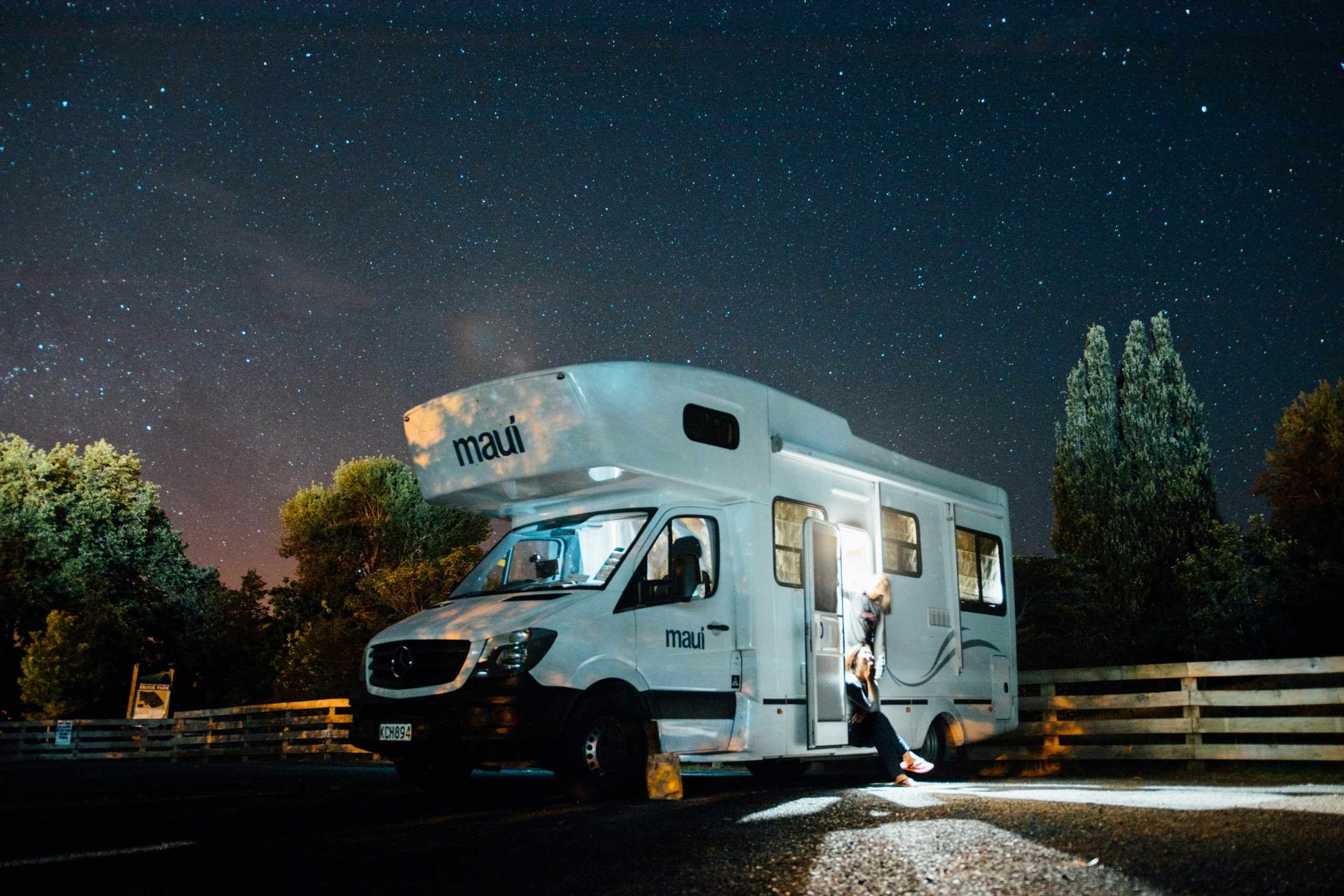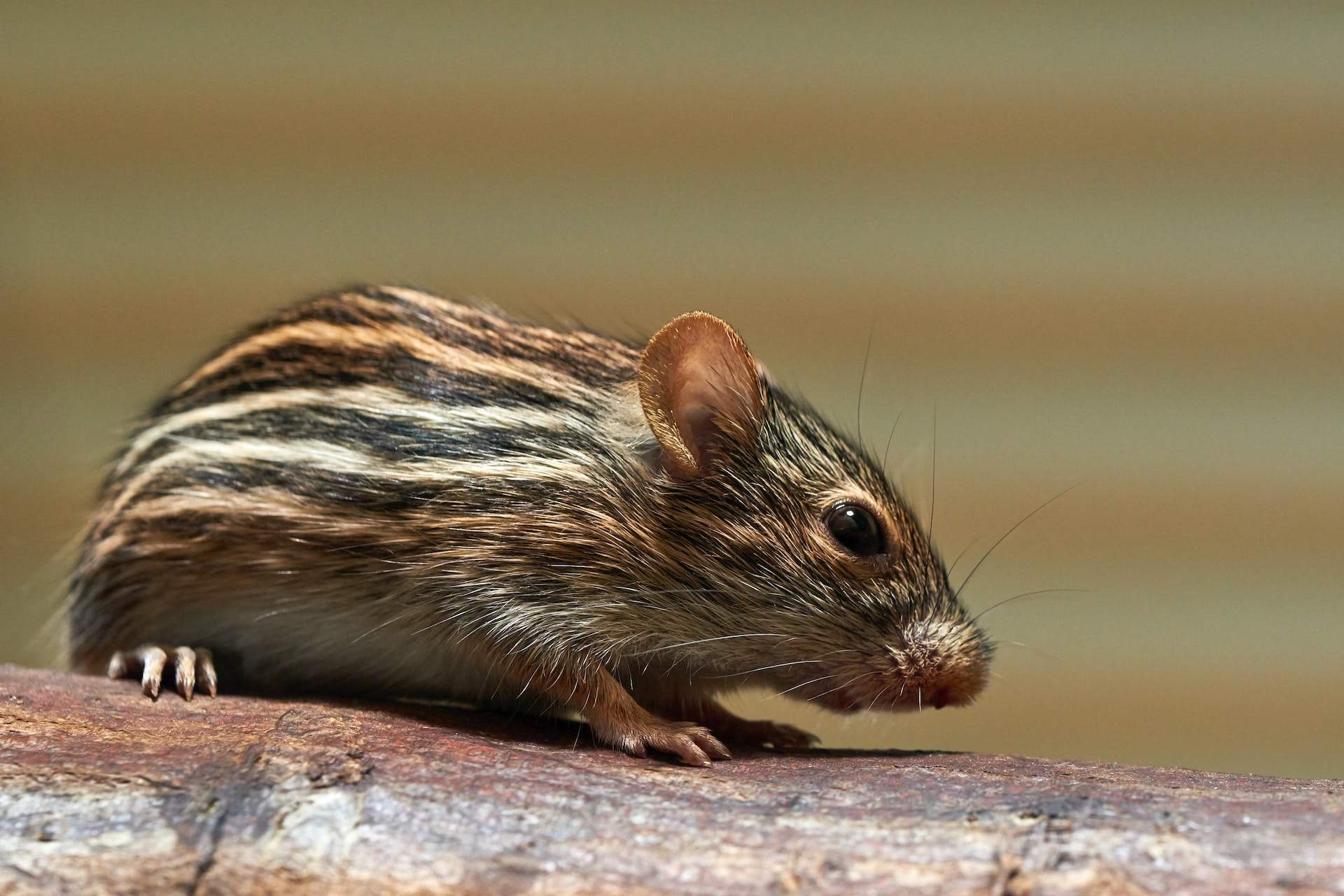It’s the bane of every RVers life — coming home to your camper to find tell-tale signs like mouse droppings or chewed through food that indicate a pest has invaded your home. While life in the outdoors has many perks, one significant drawback to living in nature means that nature might eventually come to live with you.
This all begs the question: What keeps mice and other pests out of campers?
RVs For Rent Near You
Mouse-proofing a camper will involve more tools than your usual RV packing list. In this post, we’ll show you how to keep mice out of your camper, how to mouse-proof your RV, and what to do when mice and other pests invade your rig.
The reason it’s crucial for you to know how to keep mice out of your RV is because of the damage they can cause. Beyond ripping into your food and making a nasty mess, mice love chewing up RV wiring in hidden spaces — creating a potentially dangerous situation that is very expensive to fix.

How do mice and pests get into RVs?
Mice and other pests are usually drawn into campers and RVs because they sense a warm place with an ample food supply for them to nest in. Mice are excellent climbers and can fit through an opening the size of a dime — meaning they will get in through those little holes where wiring, hoses, and vents enter your RV.
Generally speaking, mice will climb up your rig via a wheel or hitch and scurry along your rig to enter through one of these tiny entry points. Mice invasions are especially common when you’re boondocking because you’ll more commonly be parked near the wildlands where pests live. Once they’re in, they’ll search for food and — if they get comfortable enough — a place to make a nest and possibly even breed.
That’s why some of the best methods to keep mice out of your camper involve blocking potential entry points.
How to Mouse-Proof a Camper In 8 Simple Steps.

Below are some tips for keeping pests out of your camper. Take each of these steps for a pest-free home-on-wheels.
1. Use spray foam to block mouse entry points
One of the best mouse deterrents for campers is a spray foam like this one specifically designed for pest prevention. To properly keep mice out of your RV, you’ll want to locate any potential entry points along the underbelly and sides of your RV. You can then spray this special foam into those places where it’ll expand and harden to keep mice and other pests out of your rig.
2. Use wire mesh on vents
Another necessary mouse repellent for campers is wire mesh. Use wire mesh to carefully cover any vents where you feel mice might get in. Be careful to ensure that the vent still has ample airflow so you keep the mice out while still allowing your vents to function properly and safely.
3. Keep your food stored in mouse-safe containers
Instead of asking yourself: What can I put in my camper to keep mice out? Ask yourself what you might contain within your rig to keep pests outside. Mice won’t stay in your rig if they can’t access a supply of food. By storing all your dry food in glass or plastic containers and putting pet food away at night, you can keep mice and other pests out of your camper.
4. Keep your rig clean
If you contain all your food but have leftover crumbs all over your floor, mice will still be drawn in. That’s why it’s very important to keep your rig swept up and clean if you hope to mouse-proof your RV.
5. Store/park your RV on concrete
Mice love grassy areas because it keeps them hidden and offers them a handy point from which to climb into your rig. By parking your camper on concrete or gravel and not letting grass touch it on any side, you’ll help keep mice out of your camper by denying them their preferred ground.
6. Use natural repellents that mice and other pests can’t stand
Mice generally don’t like peppermint, so by soaking cotton balls in peppermint and spreading them around your rig, you can help to mouse-proof your camper.
IMPORTANT NOTE: Peppermint is known to be bad for cats and other small pets. If animals live with you in your camper, try a natural repellent instead.
7. Apply mouse-repellent spray
Mouse Free Mouse Repelling Undercarriage Lubricant is a heavy-duty product that you apply to the undercarriage of your RV before mice might invade. A jug of this repellent carries a hefty price tag but it will keep mice out of your camper.
8. Plug in pest repeller
Electronic pest repellers use ultrasonic sound to drive pests out of your home. While reviews of electric repellers are mixed, these can be a valuable tool for keeping mice out of your camper.

Signs Mice Are in Your RV
Sometimes — despite your best efforts — those pesky pests make their way into your camper. Here are some signs that mice have made themselves at home in your home-on-wheels.
- Droppings – Finding small, dark droppings in cupboards, drawers, or along floors is a clear indicator of mice. These droppings are usually about the size of a grain of rice.
- Gnaw Marks – Mice have strong teeth and will gnaw on various materials, including wood, wires, and plastic. Look for bite marks around entry points, food packages, and stored items.
- Nesting Materials – Mice build nests using soft materials like paper, fabric, or insulation. If you find shredded items, it may indicate a nesting site.
- Noises – Scratching or scurrying sounds, especially at night, suggest that mice are active within your RV.
- Unpleasant Odors – A musty or urine-like smell can result from mouse activity and indicates a potential infestation.
- Food Disruption – If food containers are chewed through or food items are moved or missing, it’s a sign that mice may be rummaging through your supplies.
By being vigilant for these signs, you can take prompt action to prevent and control a mouse problem in your RV.
How to Get Rid of Mice in an RV
If you determine you do, indeed, have mice in your RV, you’ll need to use more aggressive tools to fully mouse-proof your camper.

Have a cat?
It sounds simple, and it might not be everyone’s preferred method, but the general truth is that a cat living with you in your camper can help you with your pest problem.
But be sure to always purchase pet-safe methods of catching mice so the kitty doesn’t get hurt or sick from the tools you use to remove mice from your camper.
Live traps
The most humane way to catch mice that have gotten into your camper is by using a humane live trap. Be sure to free any captured mice in a place far away from your camper so they don’t come back!
Extra repellents
While extra natural repellent won’t send mice packing on its own, it never hurts to double this up if mice invaders have made it into your camper. Just remember to be careful with chemicals around pets, kids, and outdoor spaces.
Kill traps
If pests heavily invade your camper, you might have to bring out the big guns. Traps like these are relatively clean and quickly take care of the job.
Stay away from poison baits!
Poison baits are a very bad way to keep mice out of your camper for a couple of reasons:
- Poison baits cause pests to feel dehydrated so they leave your camper seeking water. The pest then passes away on this journey. However, remember that mice are prey for other animals, meaning if another animal eats the mouse you poisoned, you may kill that animal too!
- Poison baits can also be dangerous for your pets living in the camper with you. While bait stations are usually designed to be pet-safe, pet safety is another reason to avoid poison stations.
What about pests other than mice?
The most common pests — other than mice — that would enter your camper are bugs and spiders. By following many of the steps above to mouse-proof your camper, you’ll also help make it bug-resistant.
Additionally, bait stations, sprays, and natural repellents are effective options for keeping the bugs away from your camper.
Finally, maintain awareness of specific pests in areas you’re visiting and take appropriate steps to keep them out of your RV.
Keeping mice and other pests out of your camper is generally possible via prevention. By following the steps above, you can mouse-proof your camper so you don’t ever have to worry about getting them out. In case mice do get in, RVers, fortunately, have many tools at their disposal to remove pests and keep mice out of campers for good.
Looking to rent a pest-free RV? Have a look at RVs for rent on Outdoorsy right here.
Or, if you own a pest-free RV and would like to make money with it by sharing it with others, you can list your RV with us here.
And remember – not all RV insurers let you rent out your rig, so click here for an instant RV insurance quote from our sister biz, Roamly. They’ll let you rent out your rig and save you $$$ in the process!








